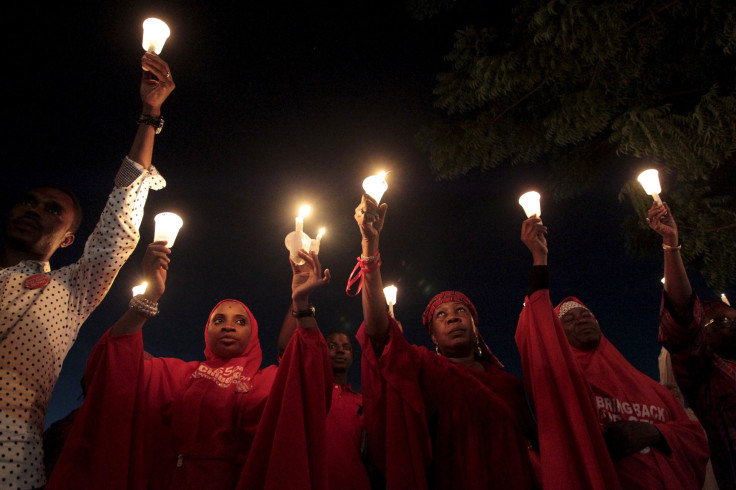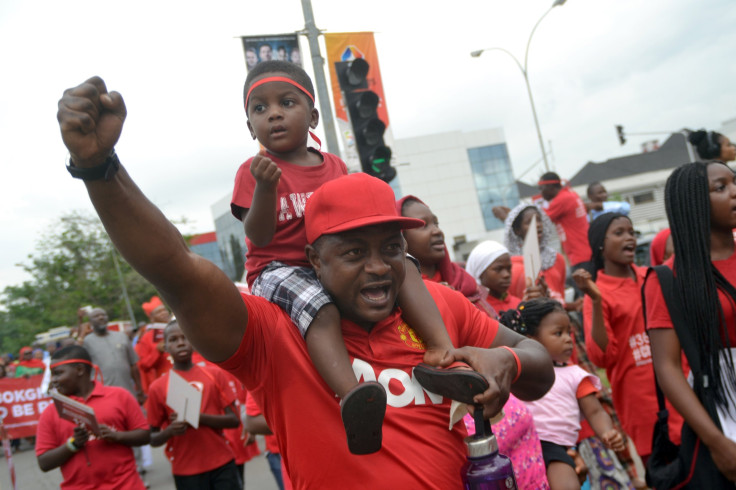Boko Haram Defeated In Nigeria's Northeast? Military Reopens Schools In Borno State, Frees Captives

In the latest sign that Islamist terror group Boko Haram may be permanently losing its grip on Nigeria, a military official in the country Sunday told the Associated Press that public schools in the state of Borno were reopening. Borno, located in the country's northeast, had long been a Boko Haram stronghold where the group terrorized and killed thousands of civilians over the course of its insurgency. The military said it had pushed the extremists from many cities and towns in the region.
Fearing for the safety of students, schools have been closed for more than two years in some parts of the state. Boko Haram made international news in April 2014 when it kidnapped more than 200 schoolgirls from the town of Chibok in Borno. Boko Haram, which has been translated by some to mean “Western education is sinful,” has targeted women and children, and has often used girls as young as 10 years old to carry out attacks at local markets and public gatherings.
A school in the city of Gwoza, which had been the headquarters of the group's Islamic Caliphate, was reopened Saturday by Nigeria's military, military spokesman Col. Sani Kukasheka Usman told the AP. He said troops continued to recapture territory from the insurgents. Unicef, the U.N. children's agency, reported that at least 1.4 million children have been displaced by Boko Haram's uprising.

Borno and Nigeria’s northeast have been the target of a three-month multinational offensive led by the African Union that has largely driven Boko Haram out of the region. In addition to killing more than 15,000 people and driving millions from their homes, the group’s militants have destroyed infrastructure that may cost more than $1 billion to rebuild, Borno Gov. Kashim Shettima said, according to Bloomberg.
“Hospitals, bridges, roads that they mined will require about 79 billion naira [$397 million]” to rebuild, Shettima, 49, said in an interview at his office in the state capital of Maiduguri. “If you are to quantify the homes, the figure may reach even three times the figure I quoted.”
The conflict has displaced 1.6 million people in Borno state, or 27 percent of the population, and about 121,000 live in camps in Maiduguri, according to the National Emergency Management Agency.
In addition to reopening the schools, the military said it rescued 62 people from around Gwoza Saturday and some 77 men, women and children from the town of Bama, most of them “haggard, dejected and obviously malnourished,” Usman told Agence France-Presse.
“The fight against the terrorists in the northeast is gaining successful momentum, with most of the camps falling to the federal might,” he said in a statement.
Boko Haram leader Abubakar Shekau dismissed the talk of success as “lies,” AFP reported Sunday. Shekau reportedly released a 25-minute recording in Hausa and Arabic on social media that disputed the claims. “[The military] lied that they have confiscated our arms, that we have been chased out of our territories, that we are in disarray.
“We are alive, I am alive, this is my voice, more audible than it was before. This is Shekau.”
He continued in the recording: “Buhari is a liar and has deceived you. The army spokesman is also lying. He and his foot soldiers always run helter-skelter whenever we come face to face with them.
© Copyright IBTimes 2025. All rights reserved.






















